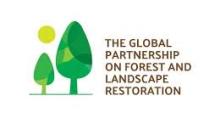Sahelian Africa is significantly affected by rainfall variability. Its populations are among the poorest and most threatened by climatic changeability and land degradation, as they depend heavily on healthy ecosystems to sustain their livelihoods. Increasing pressures on food, fodder, and fuelwood have a significant impact on the environment; and frequent droughts and poorly managed land and water resources contribute to expanding soil erosion. The Great Green Wall for the Sahara and the Sahel Initiative emerged in 2007 to address climate change, land degradation, and desertification.
The Sahel and West Africa Program (SAWAP) in support of the Great Green Wall Initiative is a World Bank and GEF umbrella-driven investment scheme that aims to expand sustainable land and water management in targeted landscapes and climate-vulnerable areas, building the resilience of both ecosystems and livelihoods. It uses a landscape approach that targets climate resilience, and food and water security in 12 countries: Benin, Burkina Fasso, Chad, Ethiopia, Ghana, Mali, Mauritania, Niger, Nigeria, Senegal, Sudan, and Togo.

Country-driven investment operations are combined with a regional technical assistance project. With grant financing from GEF and other organizations, SAWAP has leveraged a total planned investment of around US$1.1 billion. The program implementation was coordinated with regional efforts and contributes to the country objectives defined by United Nations Framework Convention on Climate Change, United Nations Convention to Combat Desertification, United Nations Convention on Biological Diversity, and United Nations Forum on Forests.
At the national level, SAWAP provides investment, information, and institutional strengthening through projects responding to country challenges. With a common “landscape approach” projects respond to country challenges based on farm-managed natural regeneration, agro-forestry, afforestation, reforestation, gully stabilization and infrastructure reconstruction, flood and drought management and resilience, and climate-smart agriculture, among other practices.
The program has received support from IDA, IBRD, the TerrAfrica and GFDRR trust funds, the GEF Trust Fund, the Least Developed Countries Fund, and the Special Climate Change Fund.


